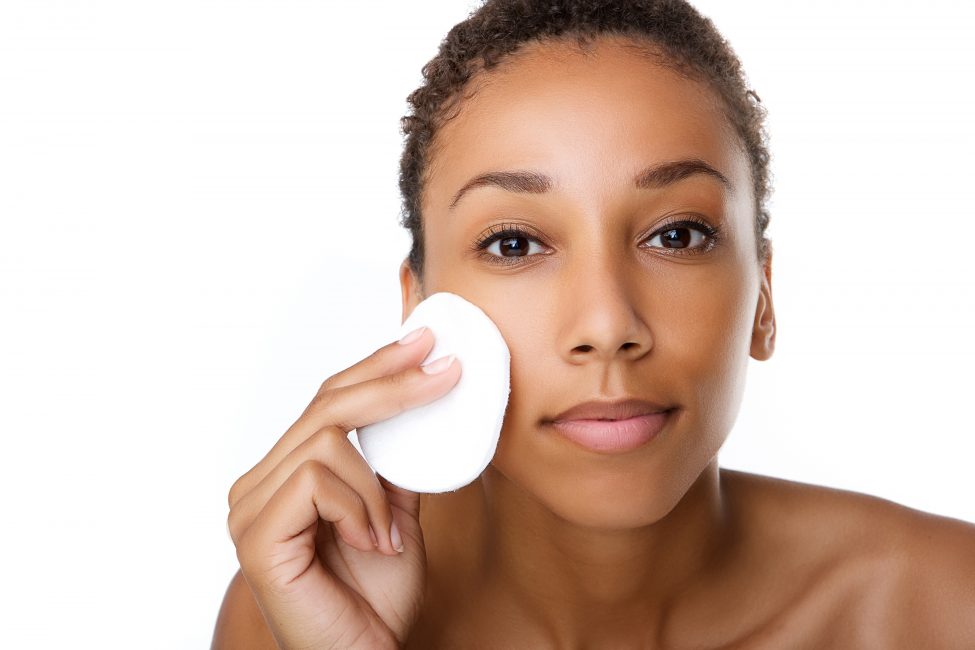
Best Makeup Practices To Protect Skin
Makeup has been marketed successfully as the ultimate beauty enhancer. Yet, makeup has also been found as the culprit of negative, long-term effects if not used and removed properly. Skin is a large organ and needs to be taken care of in order for it to last in a beautiful, healthy way. Applying foundation everyday, for example, without removing it correctly can clog pores for long periods of time resulting in more breakouts overtime.
Below, you’ll find the best practices to follow to keep your skin at its healthiest, so there can be less breakouts and wrinkles in the future.
1) Remove Makeup & Clean Face Thoroughly Before Bed
This tip is number one for a reason. Keeping makeup on overnight is BAD for your skin. Women’s Health Magazine invited Dr. Dennis Gross, an expert dermatologist in New York City, to aid in illustrating the effects of makeup on the skin when not removed at night:
A survey over the summer revealed a third of women sleep with their makeup on at least two nights a week. Doing so can clog your pores and oil glands, says Gross. “When the makeup becomes impacted in pores, it can make them appear larger.” It also stretches them out and, unfortunately, since your skin collagen levels decline as you age, your pores won’t bounce back to their original size as easily, says Gross.
The best way to remove makeup can be applied in two simple steps:
- Use Makeup Remover: Make sure to take time to remove as much makeup off the face as possible.
- Apply A Facial Cleanser: Although it may seem that all the foundation, maskera, and eyeshadow have been removed, a good facial cleanser is essential to finish the job. Facial cleansers are created to remove hidden dirt and bacteria that are not as readily seen. So, after using makeup remover, make sure to use a facial cleanser to remove the cosmetic leftovers that you don’t see.
2) Wash Makeup Brushes Every Month
Makeup brushes encounter just about everything that develops on our face: the oils, the dirt, and all the other gross substances that develop on the skin. Continuously using these brushes without washing them occasionally will do more damage than the makeup itself on the skin. It is recommended that all brushes should be cleaned at least once a month. Certain kinds of brushes have been recommended to be washed more frequently than that.
3) Always Use Sunscreen & Moisturizer
Is sunscreen and moisturizer really that essential to skin health on a daily basis?
Hallie Gould posted an article on Byrdie with an explanation on the subject from expert dermatologists:
“Sunscreen is not an ingredient,” asserts Ulli Haslacher, the founder of Pour Moi Skincare. “It should be treated as a very important layer in your skincare routine and should always be applied last (but before makeup). The purpose of sunscreen is to form a protective film on top of the skin to shield it—SPF is not there to restore moisture balance or deliver ingredients deeper into the skin.”
Apply sunscreen and moisturizer every day before applying makeup. It is as simple as that.
4) Stop Using Old Makeup
Continuing to wear old clothes, eat old food, or consume expired juice or milk has never worked well in the long run for anyone. Cosmetics that have expired should be considered similarly.
The Huffington Post posted the expiration dates for different cosmetics:
- Eyeliner: 6 months to a year
- Mascara: 3-6 months
- Blush, eyeshadow, and other powder cosmetics: 1-2 years
- Foundation: 6 months to 2 years
- Lipstick: 2 years
- Natural products: 3-6 months
Any makeup product kept longer than the estimated expiration dates above should be removed immediately. Not only do these products work less when they expire, but they can also have serious, unfavorable effects on the skin overtime.
5) Never Share
This best practice is more of a call to common sense rather than a mere point of advice. As previously mentioned, makeup brushes touch all the disgusting things on our face and so do the eyeshadow pallets and foundation creams.
The real question is:
Why would any individual decide to be the recipient of someone else’s facial dirt and bacteria? The unwanted substances from our skin, if left on overnight, does a lot of harm overtime. Can you imagine what the combination of someone else’s dirt would do?
Dermatologists have given the dangerous effects that come from sharing makeup, which include: “acne, cold sores, eye infections, and staph infections.” Experts from Westlake Dermatology have also added in further explanation for why these effects occur:
Makeup is the ideal breeding ground for viruses and bacteria. The very nature of makeup (particularly liquid formulations) and the dark containers in which they are typically packaged are the perfect habitat for unwanted germs. Makeup brushes, even when properly cleaned between applications, have a high degree of transferring bacteria each time they pass over cracks in the skin or popped pimples.
To sum it up, keep your makeup to yourself. Don’t share it.
The information provided is for general interest only and should not be misconstrued as a diagnosis, prognosis or treatment recommendation. This information does not in any way constitute the practice of medicine, or any other health care profession. Readers are directed to consult their health care provider regarding their specific health situation. Marque Medical is not liable for any action taken by a reader based upon this information.
